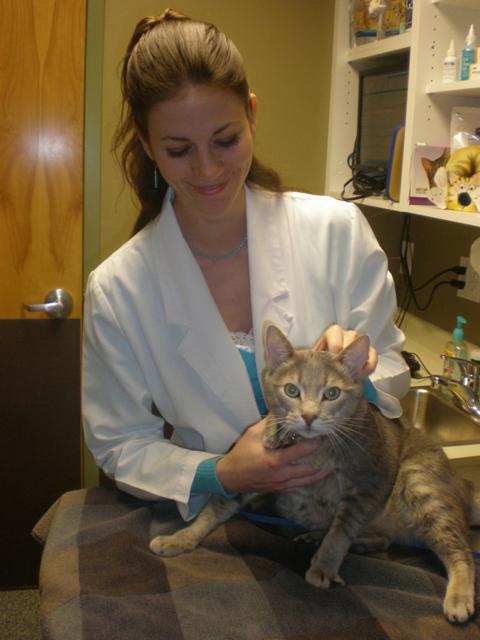Whether we’re talking about pets or people, a holistic health approach emphasizes the importance of looking at the big picture and treating the system as a whole, instead of addressing only specific symptoms.
In addition to reminding us that “an ounce of prevention is worth a pound of cure” and that it’s “way easier to treat conditions before they become chronic,” licensed acupuncturist Nancy Hyton offers a helpful overview of the basic principles of holistic health. “By balancing and harmonizing the body overall, instead of focusing on one particular isolated symptom, a higher state of wellness can be achieved,” says Hyton, who’s also a certified herbalist and founder of the Center for Holistic Medicine. She also notes, “The body has an innate ability to heal itself and naturally strives towards balance and wellness. Conditions respond better and are less likely to return when you treat the underlying cause as well as the outward symptoms.”
These principles are key to any holistic approach to wellness, for pets or for people.
Holistic wellness also emphasizes the importance of starting with less invasive treatments before resorting to more invasive measures whenever possible. For example, acupuncture or acupressure for joint problems can be helpful for pets before moving on to surgery or pharmaceuticals.
I asked veterinarian Erin Husted, who specializes in integrative medicine at Charlotte Street Animal Hospital, to tell me a bit about these alternative treatments for pets, as well as massage. “Acupuncture is best used as a preventative treatment, to maintain normal energy flow and hormone levels in the body in order to prevent diseases,” she explains. Internal harmony is one of the core values of any holistic approach to health. “If the body is in balance, disease can be prevented or treated,”
she says.
According to Husted, acupuncture points are “areas on the body that are energy-dense” — shown in studies to increase electrical conductivity and containing a high density of nerve endings, arterioles, lymphatic vessels and inflammatory mediators. Acupuncture, she continues, increases endogenous endorphins, opioids, serotonin and norepinephrine (biochemicals that promote a feeling of well-being, in short). And it’s also been proven to cause immune suppression in allergic conditions, reduce inflammation and increase blood cell counts, she adds. “These acupuncture points can of course be stimulated by acupuncture [with tiny needles], but they can also be stimulated with manual pressure [acupressure].”
Husted teaches classes at Charlotte Street Animal Hospital on both approaches for pets. Acupuncture and massage are two possible healing modalities that you can implement on your own at home after learning some basic techniques. (Husted has no set dates for upcoming classes, but information on upcoming classes can be found on the Charlotte Street Animal Hospital website, www.charlottestreetanimalhospital.com.)
When asked for a sneak peek at what she teaches, Husted replies, “one useful and easy-to-locate acupuncture point is an shen, which in Chinese means ‘calm the mind.’ It is located in the large depression behind the back of the base of the ear on cats and dogs. This is where many people rub or scratch behind their pet’s ears.” According to Husted, applying manual pressure to this point can help with itching due to anxiety, seizures, stiff neck, headache, nose bleeds, nasal congestion, facial paralysis, ear infection or inflammation and even deafness.
Massage is another great way to care for your pet at home. Husted informs me that it promotes Qi (pronounced “chi” and meaning “life-force” or “energy flow”) and blood flow, improves circulation, balances the organs, promotes immune function and soothes joints and sinews. “It is helpful for musculoskeletal and neurological conditions, internal medicine diseases, preventing disease by stimulating immune function and for [physical] enhancement in performance animals,” she says.
Of course, cats and dogs seem to know this already. They’re just waiting for you to find that an shen sweet spot.
If you’re interested in holistic health care for your pet, ask your vet. For more information about Charlotte Street Animal Hospital, visit charlottestreetanimalhospital.com. Haw Creek Animal Hospital also offers alternative care (hawcreekanimalhospital.com), and Andrew Fochios, a licensed veterinarian and acupuncturist, provides holistic care for pets (and their people) at People and Pets Acupuncture (peopleandpetsacupuncture.com). For more information about Husted’s practice, visit www.centerholistic.com.
For more information on natural healing and holistic care for pets, these are my three favorite books: Complete Guide to Natural Health for Dogs and Cats by Richard H. Pitcairn; The Encyclopedia of Natural Pet Care by CJ Puotinen; and The Nature of Animal Healing by Martin Goldstein. These books outline core principles of holistic health and provide a comprehensive overview of many natural treatment options including nutrition, herbs, homeopathy, flower essences, acupuncture, acupressure, massage and chiropractic care for pets.
— West Asheville Dog Walking owner/operator Karen Oelschlaeger can be reached at karen@avlpetsitter.com.




For those interested, Dr. Husted has just scheduled her next class. “Introduction to Massage” costs $30 and will be offered Saturday, February 19th at 5pm at Charlotte Street Animal Hospital. Well-behaved pets are welcome and you can call Charlotte Street Animal Hospital to reserve a spot in the class.
Also, “www.centerholistic.com” is actually a link to Nancy Hyton’s Center for Holistic Healting (for people, not pets) on Haywood Road in West Asheville.
One final note/correction to this article: massage and *acupressure*, not acupuncture, can be performed at home after learning basic techniques. *Acupuncture* should only be performed by a licensed acupuncturist.
Great article Karen. Bring over Rosie!
Dr Husted gave some very good info. If I did not live in Florida, I would want to take her class.
Thank You!
J Trego